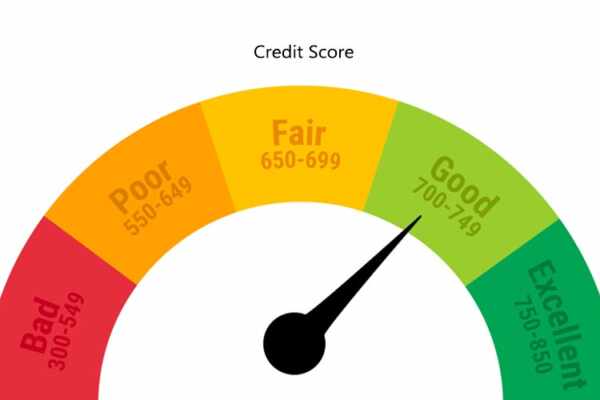There are several tax considerations for property and homeowners. Once you buy a home or a property, your responsibility builds up—the series of tax-paying starts when you buy a property to the time you sell it. You have to pay both the property tax as well as the capital gains tax. While capitals gain tax might not be an exciting factor, it is always advisable to know it. It is essential to understand how it is going to impact your property sale. Hence, in today’s article, we will talk about capital gains tax on real estate.
In the later part of the article, we will also talk about how to avoid capital gains tax on real estate.
Table of Contents
What is capital gains tax?
Capital gains tax is a tax or a levy you or other homeowners pay when you sell an asset. You pay the tax when the asset has increased in value since the time you have bought it. Depending on your tax filing status and income, the capital gains tax rate can be either 0% or 15%, or 20%. Certain assets are levied at different rates. This depends on the type of asset and the situation as well.
Almost all properties are subjected to capital gains tax. When you buy the property at a different price and then sell it at a higher price, then capital gains tax will be levied on you. These include things like furniture, collectibles, stocks, bonds, and investments. It also has cars, but these are rare exceptions because collectible vehicles are sold at a loss of the original buyer or owner. Capital gains tax also applies to properties. Therefore, we will cover the rest of the article with capital gains tax on real estate.
Let’s say you bought a property for $180,000. A few years later, you sell the property at $220,000. So, your profit stands at $40,000. Hence, the $40,000 is liable for the tax. Moreover, you have to pay the tax only when you sell your asset. Let’s say you had bought a property two years ago. Now, the property price has increased by $10,000. You do not have to pay the capital gains tax until you sell the property.
There are mainly two types of capital gains tax; one is short-term capital gains tax. And, the other one is long-term capital gains tax. Below, we have explained the two different types in detail.
What is the capital gains tax rate?
There is no single capital gains tax rate. There are many, and it depends on which rate will apply to your situation. Hence, depending on your asset and gain, your capital gains tax rate will be determined.
The first thing you have to consider is whether you are dealing with a short-term gain or a long-term gain. So, if you had an asset or property for less than a year, then it is a short-term gain. But, if you possess the property for more than a year, it is a long-term gain. However, you will find exceptions in the case of inherited or gifted property, certain sorts of investments, and patents. For tax purposes, the dates are calculated from the date of the property purchased to the selling date.
Now, the next thing is your income is the previous year and your tax filing status. So, this will determine the applicable rate and your tax bracket. So, you won’t find a single rate for capital gains tax on real estate.
Lastly, you must know the kind of asset you are dealing with. This is because even though there is a 20% tax rate on long-term gains based on income, there are conditions where a higher rate can apply.
Special Asset Classes for Long-Term Capital Gains Tax
| Asset Type | Capital Gains Tax Rate |
| The taxable part of the gained amount from the qualified small business stock sale (under section 1202) | 28% |
| Collectibles like comics, coins, art | 28% |
| The Unrecaptured gain of real property (under section 1250). This applies in cases where depreciation was reported previously. | 25% |
Short-term Capital Gains Tax VS Long-term Capital Gains Tax
If you want to know how much capital gains tax you have to pay, you must also consider the dates from when the property was bought. It also depends on when you are selling the home. Hence, the capital gains tax rates depend on various factors. This is also because there are varied tax strategies for short-term and long-term investments.
Short-term Capital Gains Tax
We have already mentioned above the rules and criteria for short-term capital gain tax. If you fall in that category, then the profit is levied at regular income tax rates. The rates are as follows:
Short-term Capital Gains Tax Rates
| Tax Rate | Single | Married Filing Jointly and Surviving Spouses | Married Filing Separately | Heads of Household |
| 10% | $0 – $9,700 | $0 – $19,400 | $0 – $9,700 | $0 – $13,850 |
| 12% | $9,701 – $39,475 | $19,401 – $78,950 | $9,701 – $39,475 | $13,851 –$52,850 |
| 22% | $39,476 – $84,200 | $78,951– $168,400 | $39,476 – $84,200 | $52,851 – $84,200 |
| 24% | $84,201 – $160,725 | $168,401 – $321,450 | $84,201 – $160,725 | $84,201 – $160,700 |
| 32% | $160,725 – $204,100 | $321,451 – $408,200 | $160,725 – $204,100 | $160,701 – $204,100 |
| 35% | $204,101 – $510,300 | $408,201 – $612,350 | $204,101 – $306,175 | $204,101 – $510,300 |
| 37% | Over $510,300 | Over $612,350 | Over $306,175 | Over $510,300 |
Now, capital gains tax rate work differently in case of if a trust or an estate declares the short-term capital gain:
Short-Term Capital Gains for Trusts and Estates
| Tax Rate | Trust or Estate Income |
| 10% | $0 – $2,600 |
| 24% | $2,601 – $9,300 |
| 35% | $9,301 – $12,750 |
| 37% | Over $12,750 |
Your property is considered a short-term investment if you have been owning it for less than a year before deciding to sell it. There are no special considerations on short-term investments for capital gains. So, the government counts the gain you have made on the property as a part of the ordinary income.
Now, this can possess a problem for house flippers. Let’s consider you earn $50,000 profit by flipping a property within a year. Now, let’s also consider that you earn $50,000 as an annual income. Hence, in such a condition, the profit you earned by selling the home doubles your income. So, when you file the federal taxes, the IRS will consider your gross income to be $100,000. Hence, you will be levied the same tax rate levied on an executive earning $100,000 working for a company.
So, you can minimize the tax burdens by wisely accounting for your deductions and expenses.
Long-term Capital Gains Tax
If you own the property for more than a year, you are liable for long-term capital gains tax. So, for short-term capital gains tax, there were seven federal tax rates. But, the long-term has only three long-term capital tax rates. The tax rates are much lower than the standard income tax rates. Moreover, you may not even have to pay the tax if you gain less than the number listed below.
So, the percentage you will pay depends on your previous year’s income and tax filing status.
Long-term Capital Gains Tax Rates
| Filing Status | 0% | 15% | 20% |
| Single | $0 – $39,375 | $39,376 – $434,550 | More than $434,550 |
| Married filing jointly and surviving spouse | $0 – $78,750 | $78,751 – $488,850 | More than $488,850 |
| Married filing separately | $0 – $39,375 | $39,376 – $244,425 | More than $244,425 |
| Head of household | $0 – $52,750 | $52,751 – $461,700 | More than $461,700 |
| Trusts and estates | $0 – $2,650 | $2,651 – $12,950 | More than $12,950 |
Examples of capital gains tax on real estate
Let’s consider you are married, and you and your husband or wife decide to file a joint tax return. So, let’s consider you both have a taxable income of $200,000 as of 2019. Hence, putting both of you in the 24% marginal tax bracket in 2018 and 2019.
Now, you purchased a property less than a year ago. Thinking of the property to be your future home, you had bought it. But, you need some money immediately. Therefore, you sell the property. So, now you gain $10,000 from when you had purchased it. If you sell it now, that is less than a year; you will be taxed at $2,400. And, it will be considered as short-term capital gains or as an ordinary income.
Now, if you had waited for one more month or a year to sell the property, then you had fallen into the category of long-term capital gains tax. So, you would have been taxed at 15% for your income and the gain’s value. So, this means you would have paid $900 less. Hence, paying just $1500. So, this means you will be gaining $8,500 on the investment.
Another example:
Now, let’s consider that you are single and buy a property with a building on it for $200,000. Now, you decide to sell it due to some reason. You sell it for $300,000. Hence, gaining $100,000 from the original price. Now, you are single and earn $60,000 a year. If you sell the land before a year, you fall under short-term capital gains tax. You are levied at 22%. So, you will owe $22,000 on your $100,000 gain. If you decide to sell it after few months or after a year, you fall under long-term capital gains tax. So, you will be levied at 15% tax. Hence, you will be paying $15,000 for your $100,000 gain. Therefore, you will be paying $7,000 less.
Hence, you can see that it is always profitable to sell the property after a year.
How much can you exclude?
You can exclude your tax amount as well. So, the IRS allows you to exclude $250,000 capital gains upon selling the main home that you live in if you are single. This is under section 121. If you are married and have jointly filed your tax, then the IRS allows you to exclude $500,000 on capital gains. All thanks to the Taxpayer Relief Act 1997. So, you are eligible for the amount exclusion only if you had owned and used the property as your main home. This should be for two years out of five prior to the date of the sale.
Let’s consider you have bought a property for $100,000 ten years ago and sell it now for $400,000. So, you have made a $300,000 gain. If you are married and have filed for tax jointly, you wouldn’t be subjected to tax exclusion. But, if you had made $600,000 gain by selling the home for $700,000, then you will be taxed on upon $100,000 gain. This is because up to $50,000 is excluded.
Now, not always can you exclude your capital gain. There are conditions where you cannot do it. These are:
- The property you are selling is not your principal residence. This is a user requirement.
- You had owned the property for less than two years than the five years before you sold it. This is an ownership requirement.
- You had not lived in the house for two years out of the five years before you sold it.
Therefore, if you fall under any category listed above, you will not be liable for exclusion. So, any gain you cannot exclude is taxable.
Now, IRS has made some exceptions as well. So, let’s check them out.
- IRS exceptions:
If you are married, and only one of you has lived and owned the property or house for two years, you are liable for exclusion. This should be two years or even more during the five years ending on the date you exchanged or sold the home. Hence, this will make you qualified for the exclusion.
Even if you do not meet both or any of the above conditions, you can still be qualified for the exclusion. This can be done only if there were any unforeseen circumstances, changes in health, or place of employment. So, in such a scenario, the excluded amount is decreased. You can even see IRS Publication 523 for more detailed information.
Moreover, you can still be allowed for exclusion if your spouse died before the home was sold. This can happen if:
- The sale is no later than two years of your spouse’s demise.
- Before your spouse’s death, both or your spouse had met with the exclusion requirement.
- You have not remarried before the exchange or sale.
Moreover, you can also choose to have the five-year ownership period and suspended if your spouse or you serve outside the U.S., as IRS notes, “as a Peace Corps volunteer or serve on qualified official extended duty as a member of the uniformed services or Foreign Service of the United States, as an employee of the intelligence community, or outside the United States as an employee of the Peace Corps.”
Hence, this means even if you had not cleared the two years requirement of living in the home before selling it, you are still allowed for exclusion. This is because you have been serving the U.S.
- Possible scenarios where you are not allowed for the exclusion
There are specific possible scenarios where you are not allowed for the excluded amount. As the IRS notes, the five years cannot be extended up to ten years. Next, you have already excluded another home before selling the current one in the two years. Lastly, you have purchased the house in the like-kind exchanged in the former five years.
Finally, suppose you are selling the principal home for a lot more than you had bought it for. In that case, you are allowed to add the original cost of everything, from remodeling, expansions, new driveways, landscaping, new windows, air conditioning installations, etc. So, you have to remember that the greater the cost basis upon which the capital gains are assessed, the lesser is the taxable amount.
Hence, in these ways, you will be liable and not liable for the excluded amount. You have to keep in mind all the points and then decide to sell your house and apply for exclusion. If you do not fall under any considerations, you will not be liable for the excluded amount. So, keep everything in your mind.
How to file your capital gains tax?
After we have talked so much about capital gains tax, its different types, and the exclusions, it’s time we know how to file it as well. It is essential to file your capital gains tax. So, IRS had mentioned that you must report your losses and gains on Schedule D. You have to report the losses and profits and the amounts on Form 1040. But, now they have simplified things furthermore.
So, if you receive the Form 1099-S, you must report the sale of the property or home even though the amount is excludable under IRS section 121. If you want to report the sale or exchange first, then report it to Form 8949.
Moreover, keep in mind, when you sell your investments, you are subjected to a 3.8% income tax net investment. Some investors may also owe the additional tax that applies to whichever is less: the net investment by which the gross income exceeds some income households. This can be $200,000 for Head of Households or Singles and $250,000 for married couples filing jointly.
Hence, in this way, you have to file your capital gains tax after you sell your property.
How to avoid capital gains tax on real estate?
If you have been wondering how to avoid capital gains tax on real estate, then we have answered that as well. You can quickly reduce or completely exclude your capital gains tax. Hence, use the following tips to reduce your capital gains tax liability.
1. Selling of Primary Home or Residence
So, you need to be living on it for two years at least out of five years for selling your primary residence. This is before you decide to sell the property. Now, the two years need not be consecutive. Moreover, you do not have to own your home for five years before claiming an exemption from capital gains tax. For example, if you own your home for three years and have lived in it for two years, you can still apply for the exemption. Hence, you do not have to pay the capital gains tax when you sell the home in such a scenario.
So, you do not have to pay taxes up to $250,000 capital gains if you are single. If you are a couple who have filled tax jointly, then you do not have to pay taxes up to $500,000 capital gains.
- You have lived in your residence for two years: If you have lived in your home for at least two years out of the five years, only you can apply for tax exemption. Moreover, the years lived need not be consecutive.
- Also, you must have owned your home for two years. If you have owned it for at least two years or a year, you have to pay the much more expensive short-term capital gains tax.
- You cannot claim a capital gains tax exemption if you have already claimed one in the last two years.
If you meet all the above criteria, then voila! You are liable for tax exemption. But, always remember that it is applicable only for primary residence and not on any other property kind.
2. Selling an Investment Property
You can also minimize your burden by selling an investment property that is not exempted from the capital gains tax. You have to keep in mind how much money you have made. This will help you to find the perfect time to sell the property.
For example, you and your husband earn $80,000 annually. Now, let’s consider your husband stops working, and your household income drops to $40,000. This would be the perfect time to sell the property because it will allow you to fall under the capital gains tax 0% bracket. Hence, this will eliminate your liability. Here, we have also presumed that your property has qualified for long-term capital gains tax. Therefore, in this way, by calculating your income and time of sale, you can reduce or exempt the tax as well.
A lot of people have tried this method and have saved themselves from capital gains tax. Moreover, you must make sure that your property is liable for long-term capital gains tax. This you can do by owning the property for more than a year or two. If you do not own it for at least a year, you will be subjected to short-term capital gains tax. Therefore, you do not have to ponder how to avoid capital gains tax on real estate in this way.
3. Selling Real Estate (Any type)
You can even sell real estate of any kind by following this tip. It does not matter what type of property you own. You have to spend your time wisely on the type of buyer you are securing and finding. Therefore, you have to select a buyer skilfully through some research. You can deduct costs like closing costs paid by you (the seller) and marketing expenses from your taxes.
Moreover, you can even deduct renovation and repairing costs from your taxes. This is because you have done it to keep the property beautiful and for sale as well. Also, make sure you have all the documents and bills, deeds of sale, credit card statements, etc., to prove your spending on the property. If you are audited, these documents will be highly important and an asset for you. Therefore, keep all the documentation secured in a file till the date you decide to sell the property.
Conclusion:
Capitals gain tax is the levy you pay upon selling your property or other assets. It can be an inherited or gifted property as well. Even though it might sound like an unimportant factor, but you must always know about capital gains tax on real estate. Once you have learned all the capital gains tax different types, you will also understand how to avoid capital gains tax on real estate.











